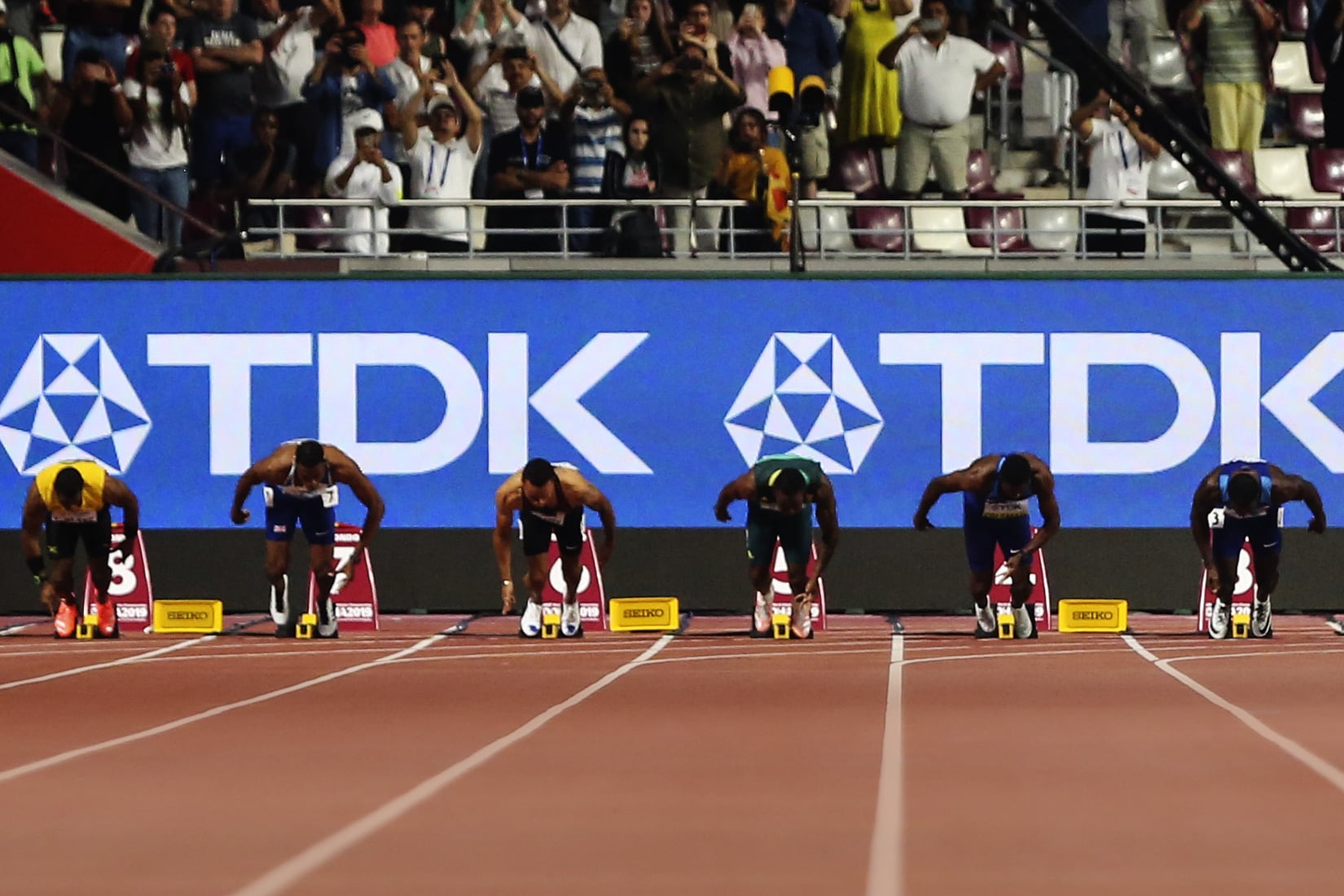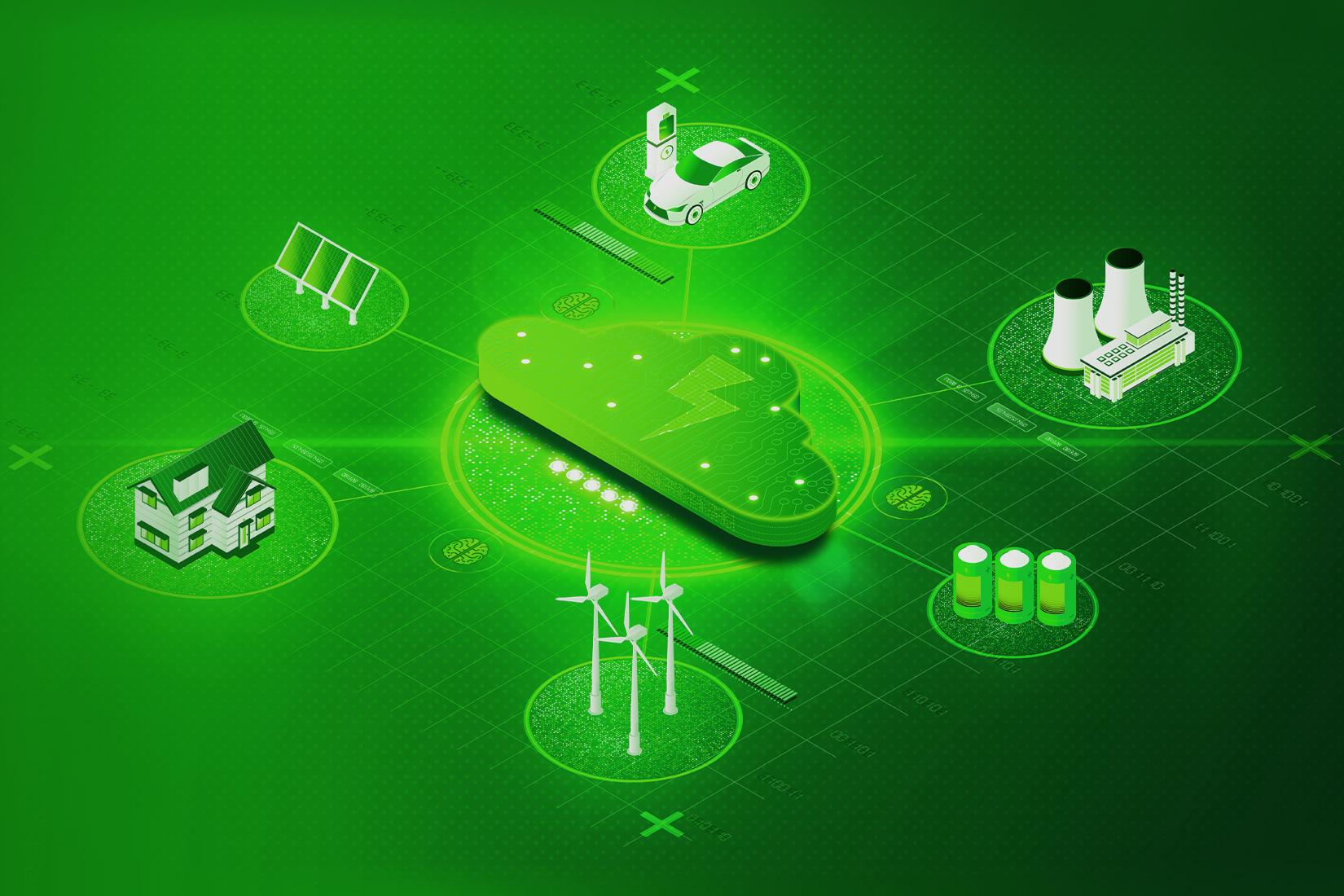

Capacitors that Underpin the Future of Railroads and Usher In the Age of the Environment
Power electronics*1, which converts and controls power efficiently, is drawing attention as one of the key technologies for overcoming environmental and energy problems. ModCap™, developed by TDK, is a series of power electronics capacitors for use in railways and renewable energy systems that enable unprecedented, innovative solutions.
Technical challenges for improving the environmental performance of railroads
With growing concern over environmental issues, the so-called “modal shift” of freight transportation away from trucks and toward railroads and ships, which are environmentally friendly and capable of mass transport, has been in the spotlight. Railroads, in particular, are arguably the most eco-friendly mode as they emit the lowest amount of CO₂ per unit transported. Expectations for railroads are growing even higher due to the increasing demand for transportation associated with the economic growth of emerging countries.
CO₂ emissions per unit of transportation in Japan
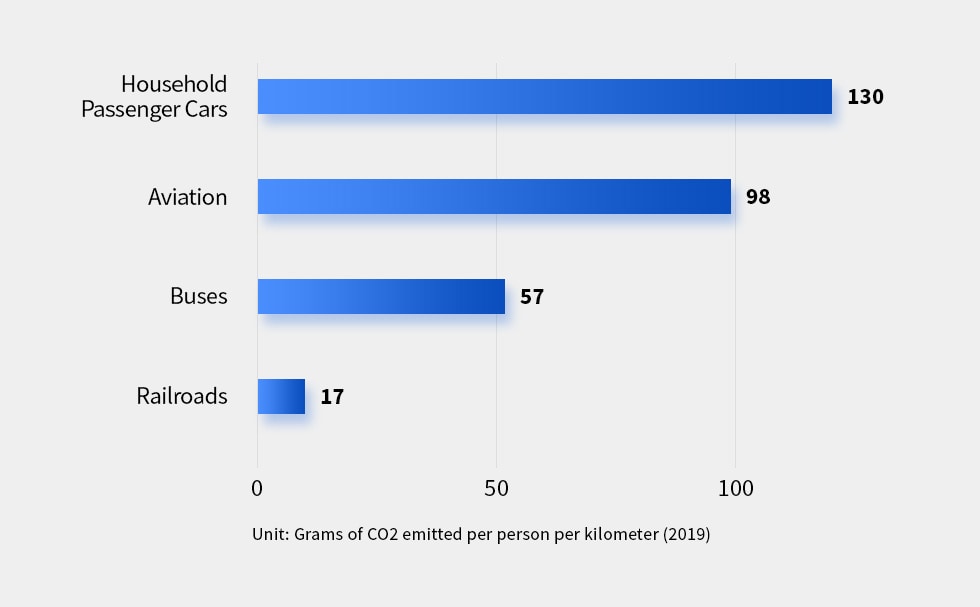
Source: Ministry of Land, Infrastructure, Transport and Tourism
In the age of the environment, railcars are expected to conserve energy more than ever. Key to this end is the advancement of electronic technologies that utilize power semiconductors*2 to control and convert electric power. When electricity is used, part of the energy is inevitably converted into heat. This wasted energy is called power loss, and reducing it as much as possible leads to efficient energy use. Specifically, power electronics in railcars refers to inverters and other devices used to control motors. Power semiconductors inside inverters convert power from direct to alternating current in order to control the rotation of motors, which helps to reduce power loss. Capacitors inside inverters support the power conversion process from direct to alternating current by smoothing the direct current.
How an inverter works (example)
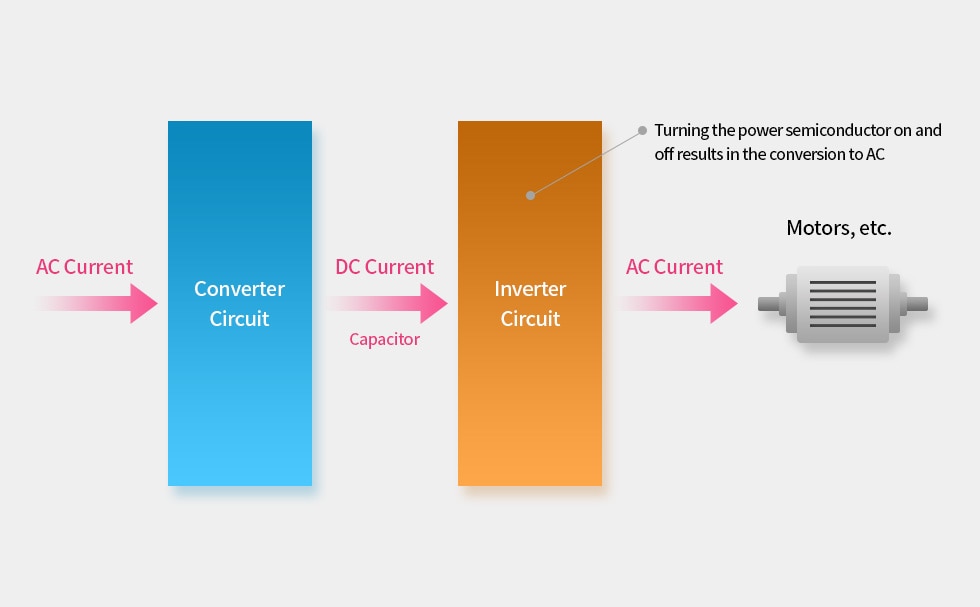
While many types of power semiconductors exist, IGBTs*3 are currently the mainstream device for controlling electric power. Not only is power loss minimized thanks to their high-frequency switching capability, but they can also withstand high voltages and are ideally suited for use with large currents. However, for the progress of power electronics overall, the performance of IGBTs and other power semiconductors notwithstanding, upgrading the capability of capacitors*4 used in conjunction with them is also a critical issue.

A groundbreaking power electronics capacitor solution that shatters conventions
Capacitors for use in power electronics are especially required to be compact and lightweight to save space in railcars and to be reliable and durable enough to withstand vibration and harsh temperature environments. Due to the nature of large infrastructure systems, capacitors for railcars are generally designed and manufactured to customer specifications every time. Custom-made products, however, require longer development times and incur higher costs.
ModCap, developed by TDK, is a family of power electronics capacitors designed to complement IGBTs. Breaking industry norms, it is the first of its kind to be successfully standardized and modularized. Three key features differentiate this product.
First is the reduction of size and weight achieved by implementing the latest, state-of-the-art design rules for capacitors and by optimizing the mechanical coupling between ModCap and semiconductors. ModCap replaces the traditional customized MKK solutions with a rectangular plastic enclosure, delivering the highest levels of downsizing, weight reduction and energy density. This contributes to the overall size reduction of power systems in railroads.
Second is its superior reliability and durability. A hot spot (the point with the highest internal operating temperature) of up to 90°C can be tolerated, whereas 85°C was the limit in the past. It also meets the highest fire and smoke safety standards for railroads.
Third, it is the first in the industry to achieve standardization and modularization. Individual needs that required custom designs in the past can now be fulfilled by a standardized lineup with a broad range of specifications. Time-to-market has been dramatically shortened, while cost has been reduced substantially.
Capacitor shapes for power electronics compared
Customized
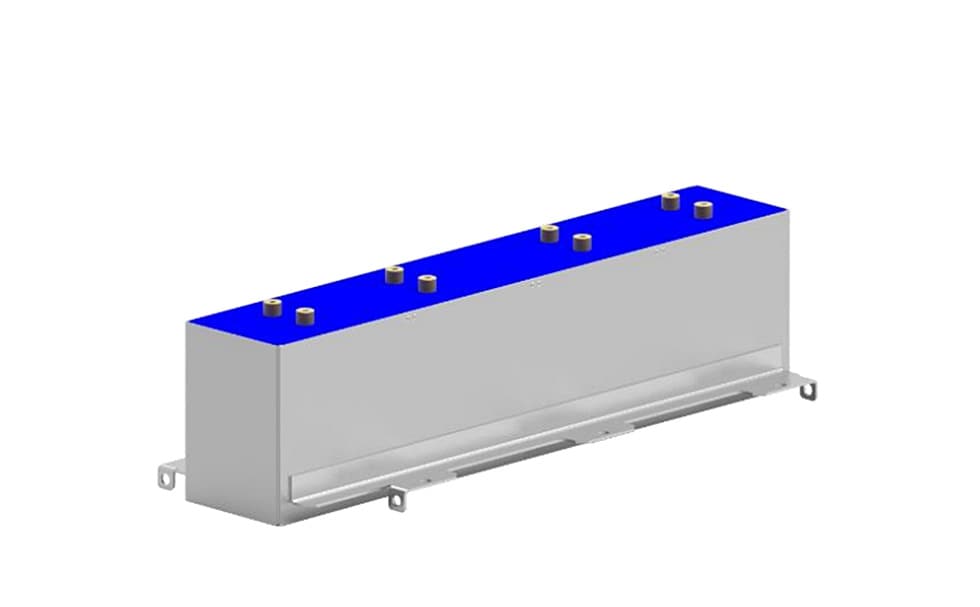
ModCap
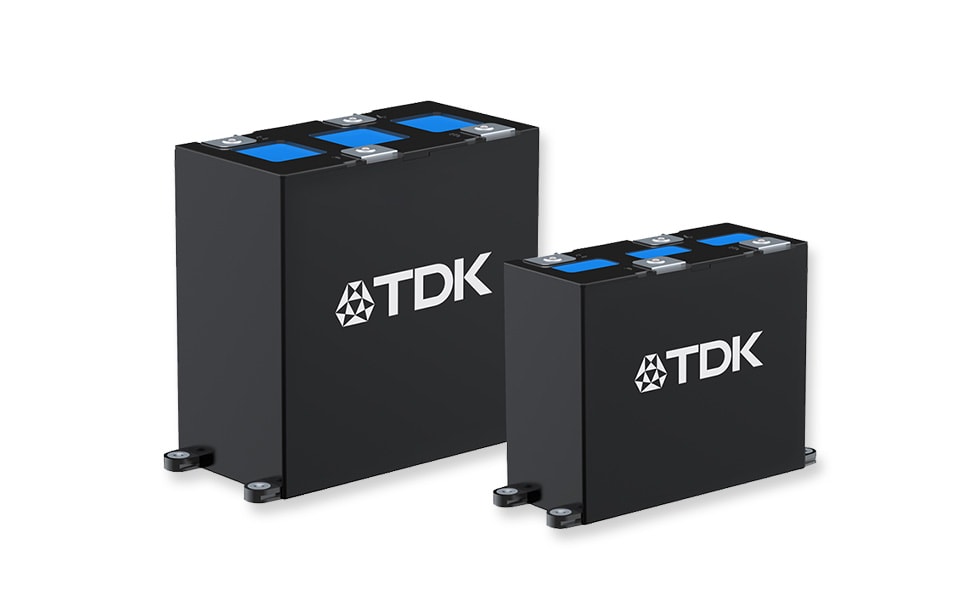
Optimal for renewable energies and industrial equipment as well

Industrial Engineer / Director
Product Marketing, High Power Capacitors
Aluminum and Film Capacitors Business Group
TDK Electronics Components
Victor Alcaide Lozano, an engineer and Director of Product Marketing for PEC HP Capacitors at TDK Electronics Components, TDK Group company, describes the future prospects of ModCap. “Because ModCap is ideal not only for railroads but also for inverters in renewable energy systems and low to medium voltage industrial equipment, we expect demand for ModCap to grow even further in the future. Currently, silicon is the primary material used in power semiconductors, but we are already preparing a version of ModCap for use with silicon carbide (SiC)*5, which is widely regarded as the next-generation material.”
Power semiconductors based on SiC are expected to feature even lower power loss than those based on silicon. Through the development of innovative power capacitors, TDK contributes to achieving a decarbonized society by enabling efficient power control and conversion for railroads and renewable energies, promoting the effective use of energy.
・Product information
Product catalog: Power Capacitors for DC applications | TDK Electronics - TDK Europe
ModCap – New modular standard series | TDK Electronics - TDK Europe
Major areas of applications for ModCap
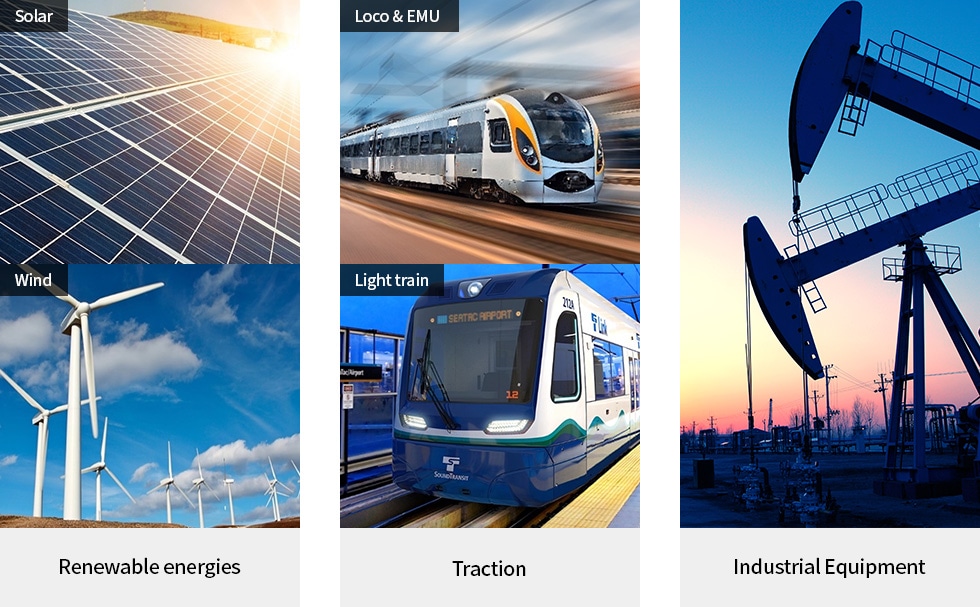
ModCap™ for DC Link
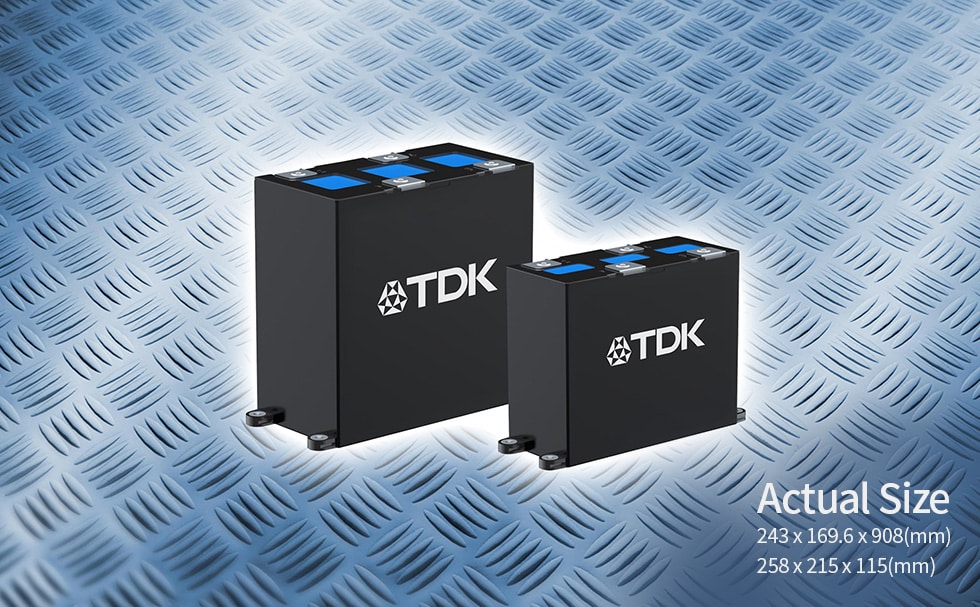
ModCap features a wide range of capacitance from 365 to 3900 µF, voltage ranging from 900 to 2,300 volts, low ESL, and long life of up to 200,000 hours. For more information, please visit the Product Page.
Terminology
- Power electronics: Technologies related to the conversion and control of electric power using semiconductor devices. It plays a major role in the efficient use of electrical energy, from homes and offices to large-scale systems and factories.
- Power semiconductor: A general term for semiconductors designed to control and convert electrical power. Common examples are power transistors, thyristors and diodes.
- IGBT: Short for Insulated Gate Bipolar Transistor, a type of power semiconductor device.
- Capacitor: One of the three major passive electronic elements, along with the resistor and the inductor. When a DC voltage is applied to a capacitor, it does not conduct current but stores an electrical charge, while AC is passed through. Capacitors are used in rectifying and smoothing circuits in power supplies by using their charge-storing property, and in filters and impedance matching by using their AC-passing property.
- Silicon carbide (SiC): A compound semiconductor material composed of silicon (Si) and carbon (C).

